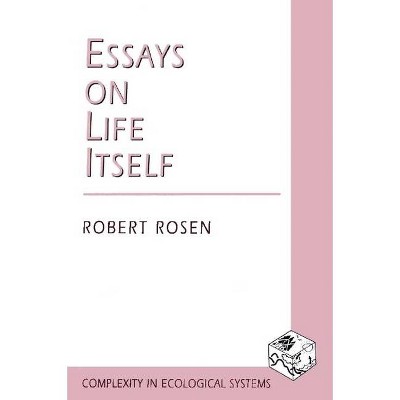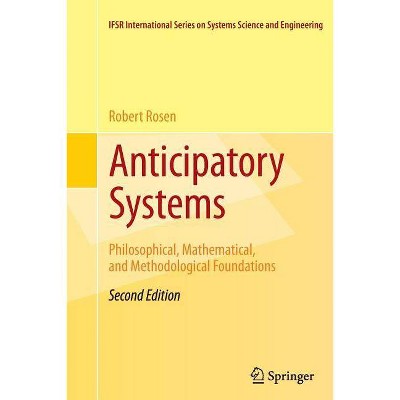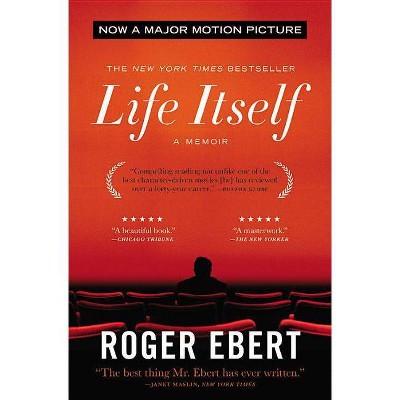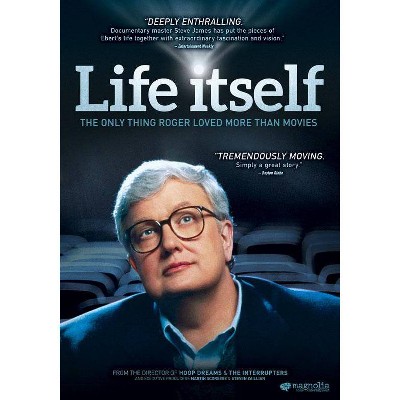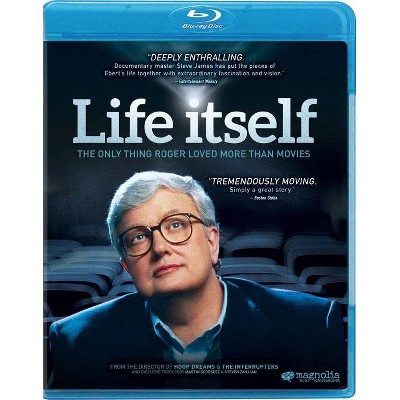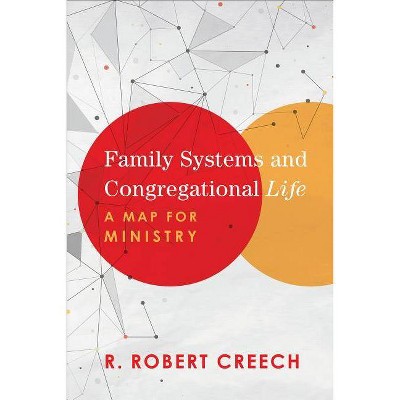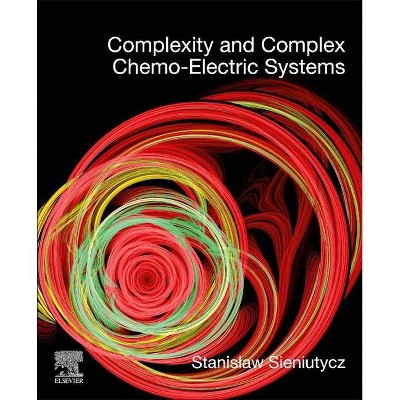Life Itself - (Complexity in Ecological Systems) by Robert Rosen (Paperback)
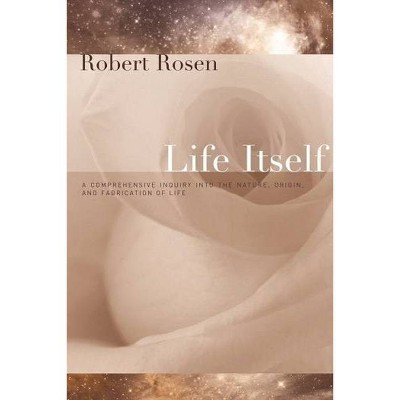
Similar Products
Products of same category from the store
AllProduct info
<p/><br></br><p><b> About the Book </b></p></br></br><P>What is life? For four centuries, it has been believed that the only possible scientific approach to this question proceeds from the Cartesian metaphor--organism as machine. Therefore, organisms are to be studied and characterized the same way "machines" are; the same way any inorganic system is. Robert Rosen argues that such a view is neither necessary nor sufficient to answer the question. He asserts that life is not a specialization of mechanism, but rather a sweeping generalization of it. Above all, Rosen argues that renouncing mechanism does not mean abandoning science. A radical alternative is proposed, drawn equally from experience in biology, physics, and mathematics; an alternative which draws attention to a new class of complex systems, which are radically different from mechanism.<p/><br></br><p><b> Book Synopsis </b></p></br></br>Why are living things alive? As a theoretical biologist, Robert Rosen saw this as the most fundamental of all questions-and yet it had never been answered satisfactorily by science. The answers to this question would allow humanity to make an enormous leap forward in our understanding of the principles at work in our world. <p/>For centuries, it was believed that the only scientific approach to the question "What is life?" must proceed from the Cartesian metaphor (organism as machine). Classical approaches in science, which also borrow heavily from Newtonian mechanics, are based on a process called "reductionism." The thinking was that we can better learn about an intricate, complicated system (like an organism) if we take it apart, study the components, and then reconstruct the system-thereby gaining an understanding of the whole. <p/>However, Rosen argues that reductionism does not work in biology and ignores the complexity of organisms. <i>Life Itself</i>, a landmark work, represents the scientific and intellectual journey that led Rosen to question reductionism and develop new scientific approaches to understanding the nature of life. Ultimately, Rosen proposes an answer to the original question about the causal basis of life in organisms. He asserts that renouncing the mechanistic and reductionistic paradigm does not mean abandoning science. Instead, Rosen offers an alternate paradigm for science that takes into account the relational impacts of organization in natural systems and is based on organized matter rather than on particulate matter alone. <p/>Central to Rosen's work is the idea of a "complex system," defined as any system that cannot be fully understood by reducing it to its parts. In this sense, complexity refers to the causal impact of organization on the system as a whole. Since both the atom and the organism can be seen to fit that description, Rosen asserts that complex organization is a general feature not just of the biosphere on Earth-but of the universe itself.<p/><br></br><p><b> Review Quotes </b></p></br></br><br>"Drawing on the languages of organizational theory, cybernetics, and category theory, Rosen questions the classic machine metaphor of life.... Once formulated, Rosen uses his concept of life to revisit relational biology, molecular biology, evolution, and chemical sequences." -- "Choice"<br><p/><br></br><p><b> About the Author </b></p></br></br>Dr. Robert Rosen (1934-1998) was a prominent theorist in the areas of biology and biophysics and taught and conducted research at various universities for over three decades. He was the author of thirteen books, including <i>Anticipatory Systems</i>; <i>Fundamentals of Measurement and Representation of Natural Systems</i>; <i>Rosennean Complexity</i>; and <i>The Limits of the Limits of Science</i>.
Price History
Cheapest price in the interval: 28.99 on October 22, 2021
Most expensive price in the interval: 28.99 on November 8, 2021
Price Archive shows prices from various stores, lets you see history and find the cheapest. There is no actual sale on the website. For all support, inquiry and suggestion messagescommunication@pricearchive.us
